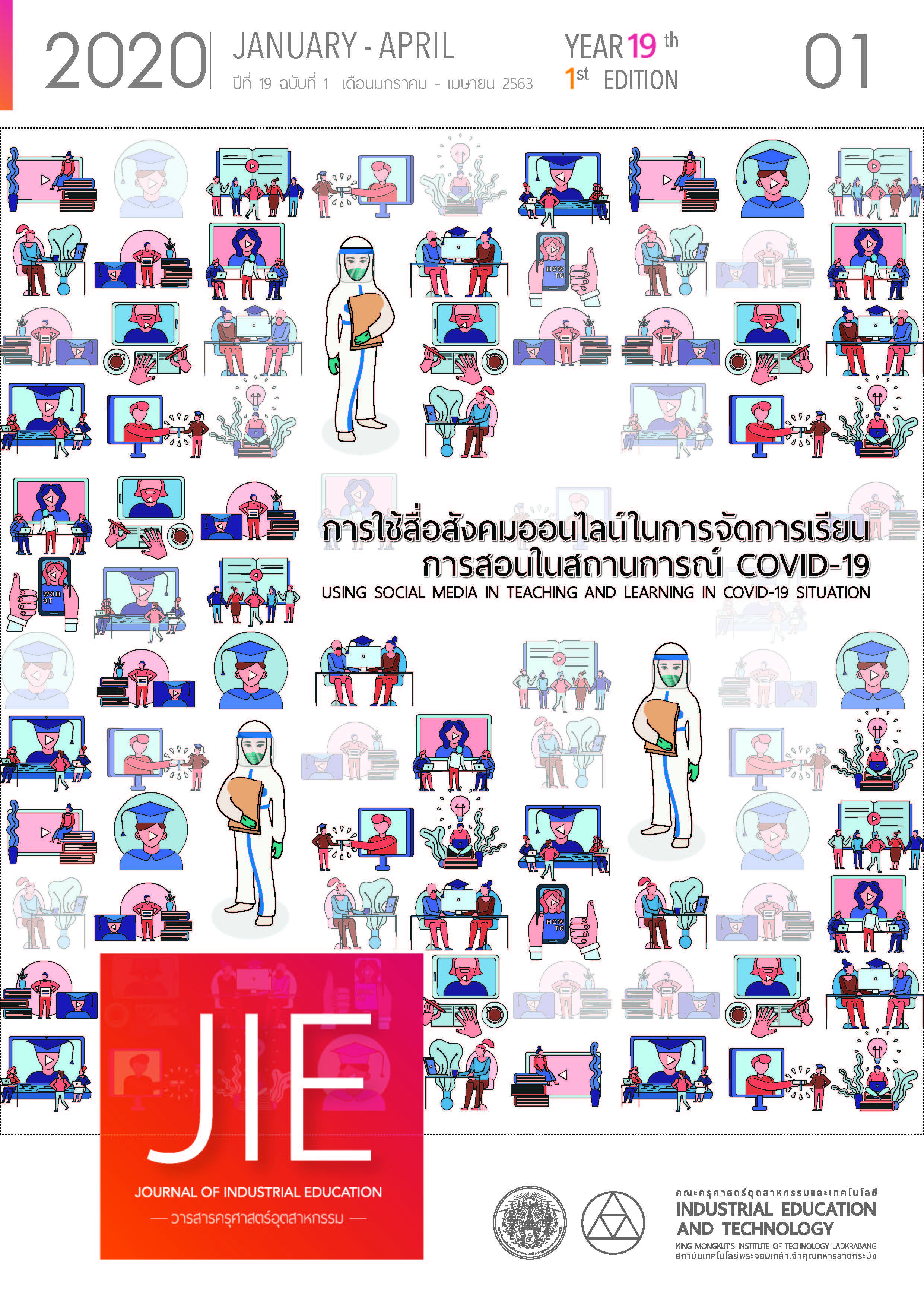THE DEVELOPMENT OF GEOMETRICAL LEARNING ACTIVITIES BY CONNECTING WITH REAL – LIFE SITUATIONS FOR EIGHTH GRADE STUDENTS
Keywords:
learning geometry, integrating, associating content with real-life situations, ability to linkAbstract
The purposes of this research are (1) to develop geometrical learning activities with real-life situations for grade eight students with the aim of achieving a 60/60 criteria; (2) to study the outcomes of the implementation of geometrical learning activities with real-life situations for grade eight students by examining their abilities to associate geometry concepts to real-life situations and their appreciation of geometry concepts in real-life situations. The eighth grade students were selected from Pramochwittaya
ramintra School with a specific criteria and four of them were chosen for in-depth analyses. The findings showed that (1) the implementation of the geometrical learning activities with real-life situations helped the grade eight students to surpass the 60/60 criteria with the average score of 69.07/69.35; (2) more than sixty percent of the students demonstrated the ability to associate geometry concepts with real-life situations and at least sixty percent of the full score, with a statistically significant level of .05
References
The Institute for the Promotion of Teaching Science and Technology. (2013). Document for remote trainers, teacher training project, elementary level of mathematics learning, teacher training standard course, year 3 (revised version). Bangkok: 3-Q Media.
Sherad III, Wade H. (1981, January). “Why is Geometric a Basic Skill?,” Mathematics Teacher. 74(1) : 19-21.
Suydam, Marilyn. (1985, September). “The Shape of Instruction in Geometry : Some Highlights from Research,” Mathematics Teacher. 78(6) : 481-485
Komol Paisal.(1997). The Development of Individualized Instruction Package in Geometry For Lower Secondary Mathematics Teachers. Dissertation Ed.D. (Mathematics Education). Bangkok: Graduate School Srinakharinwirot University.
Yupin Pipitkul. (1985, January-February). "The concept of teaching high school mathematics," Mathematics. 28 (316-317). 24-48
Kittiphan Tratunsuk (2002-2003, November - December, January). "Does teaching mathematics at the secondary level of Thailand really fail," Mathematics. 46 (530-532). 54-58.
Chanya Phoo-udom. (2002, May - July). "Guidelines for teaching and evaluation and evaluation in accordance with subject 6, mathematical skills / processes," Mathematics. 45 (524-526). 14-37.
Watcharee Kanchanakirati. (2011). Mathematics Learning Management. Phetchaburi: Mathematics and Computer Program Faculty of Science and Technology Phetchaburi Rajabhat University
Ornstein,Allan C;& Hunkins,Fracis P.(1988). Curriculum Foundation, Principle and Issue. New York: Pretice Hall.
National Council of Teacher of Mathematics. (2000). Principles and Standards for School Mathematics. Virginia:The National Council of Teacher of Mathematics.
Amporn Makanong. (2010). Mathematical Skills and Processes: Development for Development. Bangkok: Chulalongkorn University Press.
Bunyisa Saelo. (2005) . The Integration by Connecting of Mathematical Contents on Data Analysis. Data Representation, and Algebra by Using Real-Life Situations for Mathayomsuksa 3 Students . Dissertation Ed.D.(Mathematics Education).Bangkok: Graduate School Srinakharinwirot University.
Supang Chantawanit. (1997). Qualitative research methods. Bangkok: The Publisher of Chulalongkorn.
Krisada Narin. (2012). Results of mathematics learning activities Conic sections with emphasis on connection Mathematics content to real-world situations on academic achievement, problem solving ability and attitude towards mathematics. Dissertation. M.D. (Mathematics): Chon Buri: Graduate School, Burapha University. Photocopy.
Forman, L Susan. (2000). Beyond Eight Grade Functional Mathematics for Life and Work. In Learning Mathematics for a New Century, p. 140. Virginia: National Council of Teacher of Mathematics.
Downloads
Published
How to Cite
Issue
Section
License
"The opinions and contents including the words in papers are responsibility by the authors."
"ข้อคิดเห็น เนื้อหา รวมทั้งการใช้ภาษาในบทความถือเป็นความรับผิดชอบของผู้เขียน"



